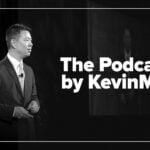When we began medical school, we had dreams and plans for what the next four years would look like. After all, we had the privilege of being siblings on the same medical training journey. The truth we have realized over these past years is that nothing truly prepares you for how medical school will change your time, priorities, and even your sense of self. Therefore, the decisions you make (or do not make) at the beginning can influence the path of the years ahead. So, to the first-year medical students whose white coats are freshly donned and to those still on the journey, from our family to you, here are the things we wish someone had told us when we first started medical school.
Time and priorities
We can attest that the days can feel long and exhausting, but the months and years fly by, leaving us wishing we could turn back the clock. One moment, our hearts were racing as we clicked “Start Exam” on Canvas for our first anatomy tests, and before we knew it, we were scanning our fingers at a Prometric testing center for USMLE Step 1. We have realized that time is not endless but somewhat limited, so learning to be intentional with it is a crucial lesson best learned sooner rather than later.
As many first-year medical students may be experiencing, with their inboxes flooded with interest group forms, potential research projects, and opportunities for community engagement, there is no shortage of options. The temptation can be to say yes to everything in hopes of becoming the stellar, highly productive medical student. No judgment here; that was us too! But in reality, every yes is a no to something else. Our plates can only hold so much before things start to slip: studying, spending time with friends, and resting. Having free time does not mean jumping on the next opportunity that comes your way. There is often subtle pressure in medical school always to be doing something, creating an illusion of productivity. There is power in waiting for the right thing. Waiting for that project, activity, or cause that genuinely excites you will be more fulfilling than committing to something you will later regret. If we could go back, we would tell our younger selves to be purposeful: do not just choose opportunities because they are available; select those that speak to you and bring a smile to your face. Sometimes, waiting is the ultimate power move. We have found that, at the end of the day, no one cares about how many clubs we have joined; they care about how passionate we are about the things we truly care about.
Academic growth and adaptability
Advice on studying in medical school can become ubiquitous, so discovering what works for us became key. Whether attending lectures or watching them after, using Anki regularly, or studying in groups, do what fits your style. Do not compare yourself to others or hesitate to try new methods. The time needed to succeed varies: One of us had a science master’s degree before medical school, making some preclinical work easier, while the other went straight from undergraduate studies but gained more clinical experience. Everyone’s experiences and strengths are unique in medical school. Collaborating with classmates from diverse backgrounds helped us achieve success. We cannot emphasize enough how important finding a balance of a reliable but dynamic study method was for us. We learned to be willing to switch to an alternative method when the current method was not effective or when a different approach is needed for a new phase. For example, we were both heavy Anki users throughout preclinicals, but when it came to studying for USMLE exams, we realized Anki would not be enough. We focused more on doing practice questions, watching YouTube videos, and discussing topics with our classmates and each other.
Be dynamic and adaptable: What worked in undergrad might not work in medical school. And that is OK! Ask for what you need: Professors, deans, and peers cannot support you if you do not speak up. Advocacy is a skill we all need to develop for ourselves and, someday, for our future patients. Some deadlines are not fixed; life happens. Communicate this to block leaders, clerkship directors, or other relevant parties involved. Overcommunication is better than no communication. If personal matters come up and you need to delay a test, contact admin, especially if you are in a challenging situation during preclinicals or rotations; because you want your tests to reflect your knowledge, not your circumstances.
Identity, resilience, and community
Both of us remember hearing early in medical school that “medicine is what we do, but it is not who we are,” but honestly, it went in one ear and out the other. Initially, we were fully immersed in the med school grind. Now, after completing USMLE exams, clerkships, and submitting ERAS applications, we have come to value our identities both inside and outside of medicine. Throughout our journey, we have faced personal hardships (including family losses), and we have celebrated milestones. These experiences have given us perspective. The privilege of medicine is real, but it is important to remember you are more than your white coat, Patagonia jacket, or medical student badge. We hold many roles beyond students, and nurturing those is just as vital. Our biggest regrets are not wishing we had studied longer, but rather wishing we had reached out: calling a grandparent, checking on a friend, or FaceTiming during tough times. Sacrificing relationships for a citation in a textbook’s appendix is not worth it. Be intentional about investing in life and relationships outside school; today’s habits will solidify in the future. Prioritizing mental and spiritual health has helped us through difficult seasons. Find restorative activities for yourself and pursue them intentionally. Seek mentors who inspire you both in medicine and in maintaining a healthy life balance. Just because life feels calm now does not mean it always will be; build resilience early.
While we share two lives’ worth of experiences in medical school, we recognize that we cannot fully capture every challenge, success, and setback of that journey. Some lessons must be lived to gain true wisdom. Still, we hope that reflecting on the perspectives gained from our two medical school journeys encourages you at the start of this chapter or affirms your current efforts (whether in how you manage your time, envision success, or view your identity). Remember that true value lies not in the letters after the name, but in the person who gives significance to that title and journey.
Chuka Onuh is a medical student. Ogechukwu Onuh is an orthopedic surgery resident.



















![AI censorship threatens the lifeline of caregiver support [PODCAST]](https://kevinmd.com/wp-content/uploads/Design-2-190x100.jpg)
